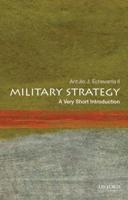Publisher's Synopsis
During the early years of the Cold War, the United States Army developed the new doctrine of Unconventional Warfare. This work focused on U.S. soldiers working through and with indigenous guerrilla units to achieve tactical successes in support of the larger theater campaign. The early doctrine writers failed to incorporate three key lessons from the guerrilla war fought in Yugoslavia (1941-1945). The lessons were the selection and employment of the right people as advisors, the effective employment of guerrillas (who have a different agenda) and setting the conditions for effective demobilization of the guerrilla force. These overlooked lessons offered a more comprehensive approach in terms of advising, employing and then demobilizing the guerrilla units in support of U.S. military objectives. The lost lessons provided valuable planning considerations for future advisory units. Through these lessons, U.S. advisors can prepare to work with robust guerrilla organizations that are not solely dependent on U.S. logistical, moral or political support.










